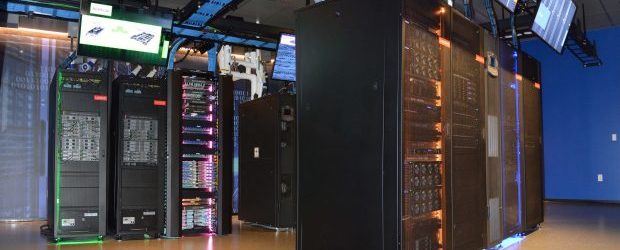Digital transformation is crucial for companies wanting to grow in the modern business ecosystem, and emerging technologies like artificial intelligence (AI) can help with that.
Lenovo has announced two new partnerships with postsecondary institutions, three new AI innovation centres, and two new AI-enabled products at its SuperComputing 2017 conference in Denver, Col., which are meant to help its customers embrace AI and become more productive and transformative.
“Artificial intelligence is already having a profound impact on traditional business strategies and scientific research, and most senior leaders consider it a priority for the year ahead,” Kirk Skaugen, president of Lenovo’s Data Center Group, says in a Nov. 14 press release. “To truly benefit from the vast amount of data available to organizations today, our customers must embrace AI as the vehicle to help them achieve success in today’s competitive business landscape. With our newly opened, global AI innovation centers and a comprehensive product and service portfolio we are committed to helping bring their AI deployments to life.”
Lenovo has teamed up with researchers at North Carolina State University (NCSU) to use an AI-enabled geospatial image analysis process that can be used to monitor farmland, crop, and soil health, as well as identify areas potentially affected by flooding or droughts. The two parties are hoping this will lead to more efficient management of water and energy resources at a time when the impact of climate change is being felt dramatically in the global food production and water systems.
The Chinese tech company has also started collaborating with The University College London to research how to streamline resources and apply AI technology in a better way.
Additionally, Lenovo has opened three new AI innovation centres located in Morrisville, North Carolina; Stuttgart, Germany; and Beijing, China, which are supposed to help customers “discover how AI can help solve their biggest business or humanitarian challenges,” the company says in the release. These facilities build on Lenovo’s broader strategic investment of $1.2 billion USD in AI research and development initiatives, which you can learn more about in Lenovo’s video below.
Lenovo’s partnership with NCSU will utilize the company’s new innovation centre in Morrisville and its AI infrastructure to “crunch billions of data points in hours that would otherwise have taken NCSU about a year and significant operating expenses to establish and maintain,” according to a company blog post from Nov. 13.
“Without a means to process our geospatial big data, we are unable to advance our research methods to predict agricultural trends and adverse impacts of droughts and other climate change impacts,” adds Dr. Ranga Raju Vatsavai, NCSU associate professor in the computer science department, associate director of the Centre for Geospacial Analytics, and lead researcher of the Lenovo-NCSU partnership. “Our partnership with Lenovo brings meaning to this data with advanced computing power that lets us use deep learning, machine learning and AI to prevent negative impacts to the food supply chain, all without worrying about the reliability and performance of the hardware equipment on the back end.”
Lastly, Lenovo has launched new GPUs for ThinkSystem SD530, giving it the adaptability and scalability to handle complex environments like high-performance computing. It also includes support for the latest NVIDIA Volta architecture-based Tesla V100 GPU accelerators and Intel Xeon Scalable Systems family processors so that it can run AI applications and workloads at scale efficiently.
The company has also unveiled the Lenovo Intelligent Computing Orchestrator (LiCO), a “powerful management suite with an intuitive GUI that helps accelerate development of AI applications.” LiCO can monitor neural network training, schedule AI workloads in multi-project environments, and can work across various solution providers.





